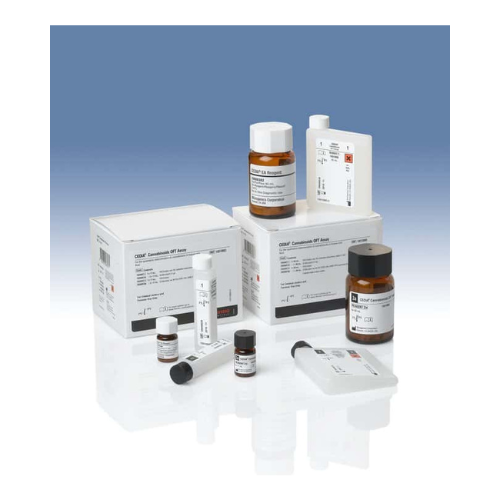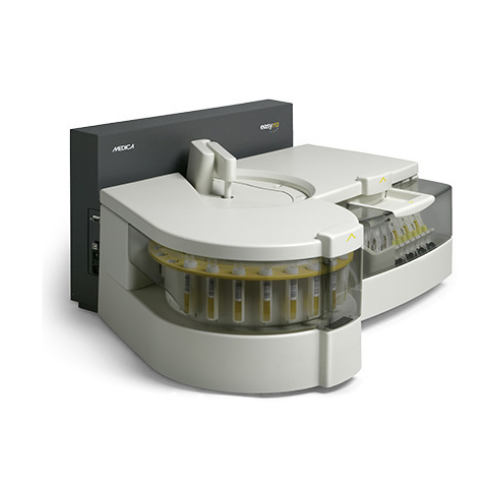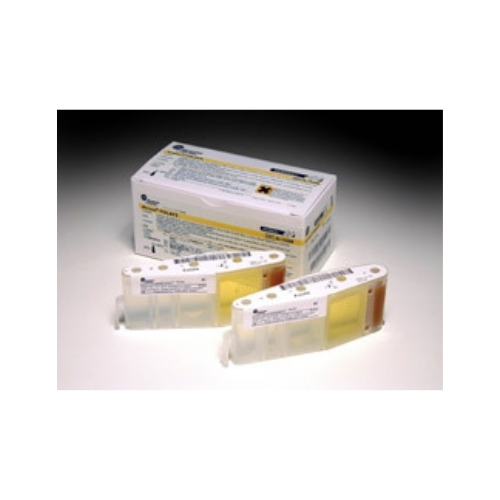For Business Use Only. Does Not Ship to Residential Addresses. For use inside an Analyzer, Sold Separately.
Thermo Kit Metd Mtb 100mL
Thermo Kit Metd Mtb 100mL
Product Code: 100115
Manufacturer: Thermo Scientific
Shipping Weight: 2.00lbs (0.91kg)
Intended Use
The DRI® Methadone Metabolite Assay is intended for the qualitative and semiquantitative determination of the presence of Methadone Metabolite, (2-ethylidene-1, 5-dimethyl-3, 3-diphenylpyrrolidine or EDDP), in human urine at cutoff 1000 ng/mL. The semiquantitative range of the assay is 31-2000 ng/mL. The assay provides a simple and rapid analytical screening procedure to detect methadone metabolite in human urine.
Summary and Explanation of the Test
Methadone is a synthetic opiate that effectively suppresses the craving for heroin without the euphoric effects of heroin. Methadone is commonly used in treatment facilities to detoxify and maintain heroin addicts. Methadone treatment compliance is essential and can be effectively monitored by urine screening of methadone and its metabolite.
The mechanism of methadone metabolism is commonly understood. Once administered, methadone is quickly metabolized by the liver into normethadone by N-demethylation. Normethadone is rarely detected, because it readily dehydrates to form EDDP, the primary metabolite of methadone. Further demethylation of EDDP forms 2-ethyl-5-methyl-3, 3-diphenyl-1-pyrroline (EMDP), the secondary metabolite of methadone, which is present in lower concentrations.
Various immunoassay techniques are currently available for methadone compliance monitoring. However, these tests measure the parent drug only (i.e., methadone) and are subject to “false positives” from addicts who add a portion of their methadone directly into the urine sample. As a result, confirmation of the presence of EDDP by thin layer chromatography (TLC) or gas chromatography (GC) is often required. Both TLC and GC methods are laborious and subject to considerable interference. Determination of the presence of EDDP in urine with an immunoassay makes possible the widespread testing for compliance and rules out the possibility of adding Methadone to urine in clinics where unsupervised urine collections are permitted.
The DRIMethadone Metabolite assay utilizes liquid ready-to-use reagents and calibrators. The assay uses specific antibodies that can detect EDDP in human urine without cross-reactivity to the parent drug, methadone. The assay is based on competition between a drug labeled with glucose-6-phosphate dehydrogenase (G6PDH), and free drug from the urine sample for a fixed amount of specific antibody binding sites. In the absence of free drug from the sample, the specific antibody binds the drug labeled with G6PDH and causes a decrease in enzyme activity. This phenomenon creates a direct relationship between drug concentration in urine and enzyme activity. The enzyme activity is determined spectrophotometrically at 340 nm by measuring its ability to convert nicotinamide adenine dinucleotide (NAD) to NADH.














